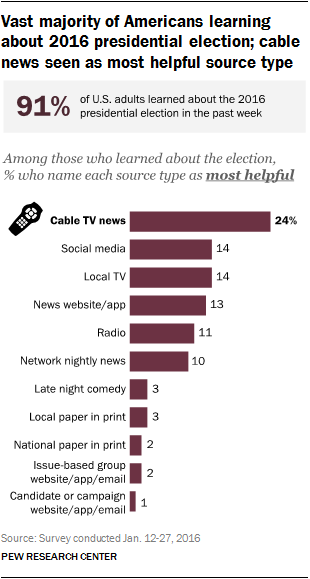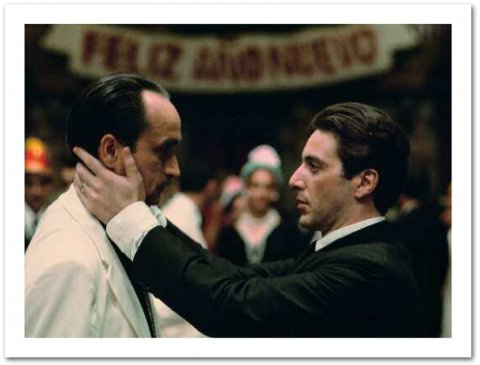This Lawrence O’Donnell segment from last night is worth watching —
Among other things, people being interviewed in the clip above discuss how the people behind the July 9, 2016 meeting are all old business associates of the Trump family. There are videos in circulation showing the old man at a party with several of them.
While this week’s revelations have focused on Junior, the dots all connect back to Jared Kushner. We found out about the meeting because Jared Kushner’s lawyers amended his Form SF-86, a questionnaire that is part of the application for national security clearance. Kushner initially submitted the form last January and was soon found to have “forgotten” a lot.
Kushner’s aides have previously told the Times that he holds an interim security clearance, which Sean Bigley, a federal security clearance attorney at Bigley Ranish, LLC described to TPM as a “golden ticket†that provides government employees with “the full level of access†needed for an applicant to perform his or her role.
Kushner’s failure to disclose dozens of contacts with foreigners, including the CEO of a Russian state-owned bank and the Russian ambassador to the United States, have prompted Democrats to call for his interim clearance to be reviewed or pulled entirely. White House spokeswoman Sarah Huckabee Sanders on Tuesday dodged questions about whether Kushner still had it.
When the Times first broke the news of Kushner’s omissions in April, Gorelick [Kushner’s lawyer] told the newspaper that they were made in error. Kushner submitted his lengthy SF-86 form prematurely on Jan. 18, Gorelick said at the time, and his office informed the FBI the next day that he would be providing additional information about his foreign contacts.
“Amending” the form isn’t unusual, the article says, and Kushner probably won’t get in trouble for initially filing an incomplete one. But there’s more.
Yesterday, McClatchy reported that Kushner’s role in the campaign has drawn attention —
Investigators at the House and Senate Intelligence committees and the Justice Department are examining whether the Trump campaign’s digital operation – overseen by Jared Kushner – helped guide Russia’s sophisticated voter targeting and fake news attacks on Hillary Clinton in 2016.
Congressional and Justice Department investigators are focusing on whether Trump’s campaign pointed Russian cyber operatives to certain voting jurisdictions in key states – areas where Trump’s digital team and Republican operatives were spotting unexpected weakness in voter support for Hillary Clinton, according to several people familiar with the parallel inquiries.
Also under scrutiny is the question of whether Trump associates or campaign aides had any role in assisting the Russians in publicly releasing thousands of emails, hacked from the accounts of top Democrats, at turning points in the presidential race, mainly through the London-based transparency web site WikiLeaks. …
…Â By Election Day, an automated Kremlin cyberattack of unprecedented scale and sophistication had delivered critical and phony news about the Democratic presidential nominee to the Twitter and Facebook accounts of millions of voters. Some investigators suspect the Russians targeted voters in swing states, even in key precincts.
Russia’s operation used computer commands knowns as “bots†to collect and dramatically heighten the reach of negative or fabricated news about Clinton, including a story in the final days of the campaign accusing her of running a pedophile ring at a Washington pizzeria.
One source familiar with Justice’s criminal probe said investigators doubt Russian operatives controlling the so-called robotic cyber commands that fetched and distributed fake news stories could have independently “known where to specifically target … to which high-impact states and districts in those states.”
It gets juicier.
Among other things, congressional investigators are looking into whether Russian operatives, who successfully penetrated voting registration systems in Illinois, Arizona and possibly other states, shared any of that data with the Trump campaign, according to a report in Time.
“I get the fact that the Russian intel services could figure out how to manipulate and use the bots,†Virginia Sen. Mark Warner told Pod Save America recently. “Whether they could know how to target states and levels of voters that the Democrats weren’t even aware (of) really raises some questions … How did they know to go to that level of detail in those kinds of jurisdictions?â€
The Russians appear to have targeted women and African-Americans in two of the three decisive states, Wisconsin and Michigan, “where the Democrats were too brain dead to realize those states were even in play,†Warner said.
To those who are certain the Trump/Russians stole the 2016 election, I would like to point out that if the Clinton campaign hadn’t been so brain dead, there would have been fewer vulnerabilities to exploit. Ultimately, it was Clinton’s election to lose, and she lost it. She might very well have lost it had the Russians done nothing at all. Historians will probably be arguing the point for the rest of eternity. But this is about something bigger than who won the election.
Back to Jared Kushner — this is from an article published in the New York Times this morning:
While Donald Trump Jr. has been on the firing line, the meeting with Ms. Veselnitskaya could arguably be a bigger distraction for Mr. Kushner. As a senior adviser to the president, he is involved in several of the administration’s most sensitive foreign-policy issues, from China to the Middle East peace process. His involvement in the meeting led reporters to ask the White House whether he still held his security clearance.
Also under scrutiny is how forthcoming Mr. Kushner was with his father-in-law about the nature of the June meeting. He met with Mr. Trump to discuss the issue, according to advisers to the White House, around the time he updated his federal disclosure form to include Ms. Veselnitskaya’s name on a list of foreign contacts that Mr. Kushner was required to submit to the F.B.I. to obtain a security clearance.
Mr. Kushner supplemented the list of foreign contacts three times, adding more than 100 names, people close to him said.
Mr. Kushner played down the significance of the meeting and omitted significant details, according to two people who were briefed on the exchange. They said Mr. Kushner informed the president that he had met with a Russian foreign national, and that while he had to report the name, it would not cause a problem for the administration.
Another official said Mr. Kushner’s assurance to the president was based on the fact that nothing came of the June meeting.
Meanwhile, the old man appears to be in a kind of denial. He has been saying that his son did nothing wrong, but earlier today in Paris he blamed Loretta Lynch for allowing the Russian attorney into the country. So, it’s all Obama’s fault.
Even weirder, though, is that according to the New York Times article linked above, Trump believes the worst is over.
The fierce criticism of a meeting between Mr. Trump’s eldest son, Donald Trump Jr., and a Kremlin-linked lawyer in June 2016 has left the president by turns angry, defensive and protective but ultimately relieved that for now, the worst appears to be over, people who spoke to him said Wednesday.
Oh, sweetums, I doubt the worst has even started yet. We’ll know what the worst is when we hear from the Mueller investigation, and that may take awhile.
I want to close with something Josh Marshall wrote yesterday, which is that the Trumpettes don’t seem to understand what kind of trouble they are in.
The abiding sense I get is not simply that they don’t know the magnitude of the legal threat but that they don’t understand the nature of the threat either. Again and again they seem to think the legal vulnerability can be trumped by good news cycles or getting the press to focus on some other individual.  They don’t seem to get that a big, sprawling federal investigation like this, untethered from the political chain of command and led by one of the top law enforcement professionals of his generation, trundles onward with a perfect indifference to whether you win the morning or kill it in 10 or a 100 different news cycles. Those things just don’t matter. And yet my sense at least is that Jared Kushner thinks he is helping himself by knifing his brother-in-law – as though if Don Jr is at the center of a media firestorm for a few days, Mueller will just forget about him.
Here is an example of what I’m talking about. This is from Mike Allen’s morning Axios email.
The view in Kushner’s orbit is that the brutal new revelations are more P.R. problems than legal problems. And if he makes progress with his Middle East peace efforts, perceptions would be very different.
Again, this strikes me as a profound and dangerous naïveté. These are certainly not PR problems. Prosecutors, meanwhile, really don’t care how well you’re doing on the policy front. But even if you grant the nonsensical premise – that grave legal problems can be managed with good PR or even substantive policy successes – this is an inane statement.
Yeah, and how hard can it be to broker peace in the Middle East anyway? It’s not like anybody ever really tried before, is it?
New York’s business and media world is a cockpit of vipers. It’s hard to say anyone who comes out of that world is green or wet behind the ears. But Washington DC, and especially big federal criminal investigations, are different. It does not prepare you for that. If you look at Trump’s own career, there’s a persistent pattern. Get into a jam and you call in the lawyers, make threats, threaten lawsuits. If someone gets in your way you bleed them for years in court. If things go bad, you settle and move on. There’s also the tabloids. They look vicious. But they can also be deeply pliant for the rich. Landing a blow by planting a nasty story in the Post is a persistent theme of Trump’s racket for decades. Being a longtime informant for the FBI solves other problems. Having a problem with a disloyal? Fire them and threaten retribution. There’s probably an NDA already in place. They can be dealt with.
Kushner, notoriously, bought The New York Observer as one of his first gambits after taking over the family business when his dad headed to the big house. But he reportedly used the paper as a tool to attack business enemies. Kushner’s interest in the Observer has always struck me as of a piece with Trump’s modus operandi with the New York tabloids.
Because of the President’s damaged personality and perennial and chronic anger it can seem like he’s different, that he gets the magnitude of the situation. I don’t think he does. Every reverse is because he’s being treated unfairly or let down by Reince Priebus or Steve Bannon or now his loyalist lawyer Marc Kasowitz. The problems won’t go away because his staff can’t stop the leaks. In a situation like this there aren’t a lot of people you can effectively buy or destroy. This is a legal world that Trump has very little experience with.
A big federal investigation like this is like a broad lava flow. It moves slowly but it is unstoppable. It burns and crushes things in its wake. And things too big or unburnable it just covers over. The little antics and PR gambits mainly do not matter. Key players in this mix don’t seem to appreciate that.
I wish the lava flow would move a little faster. Do read all of Josh Marshall’s piece. And see also Paul Waldman, “The Trump White House Is a Confederacy of Dingbats.”
Update: See also Nicholas Kristof, “All Roads Now Lead to Kushner.” I had forgotten about Kushner’s plan to set up a secret communications channel with the Russians.


